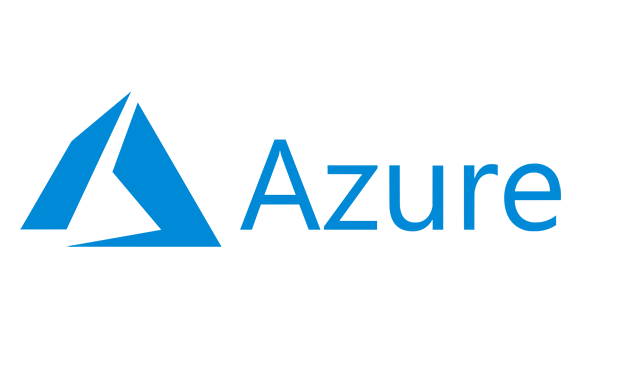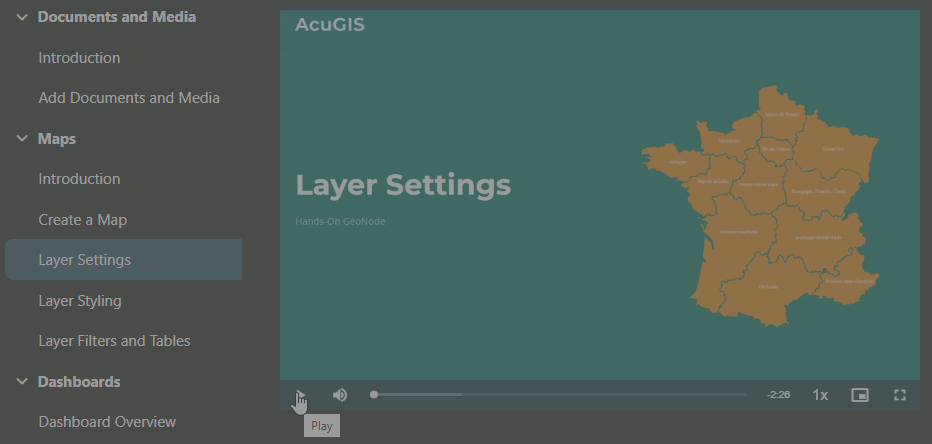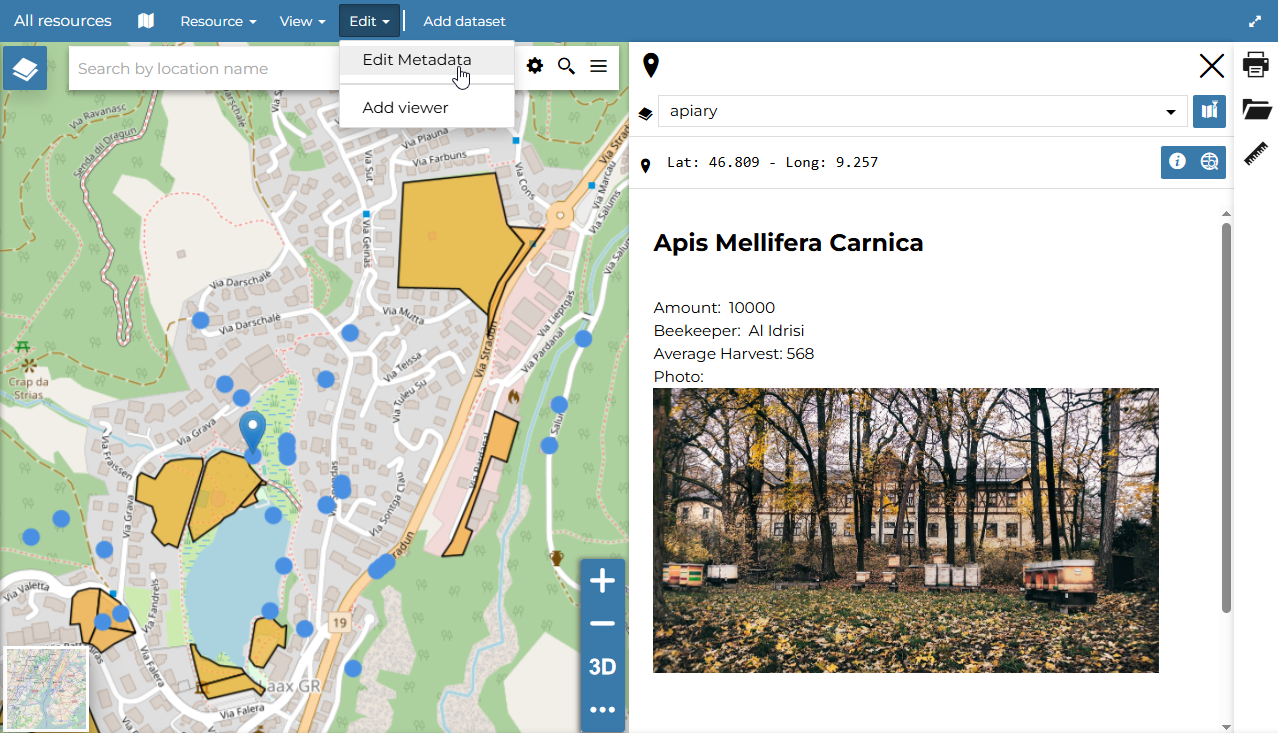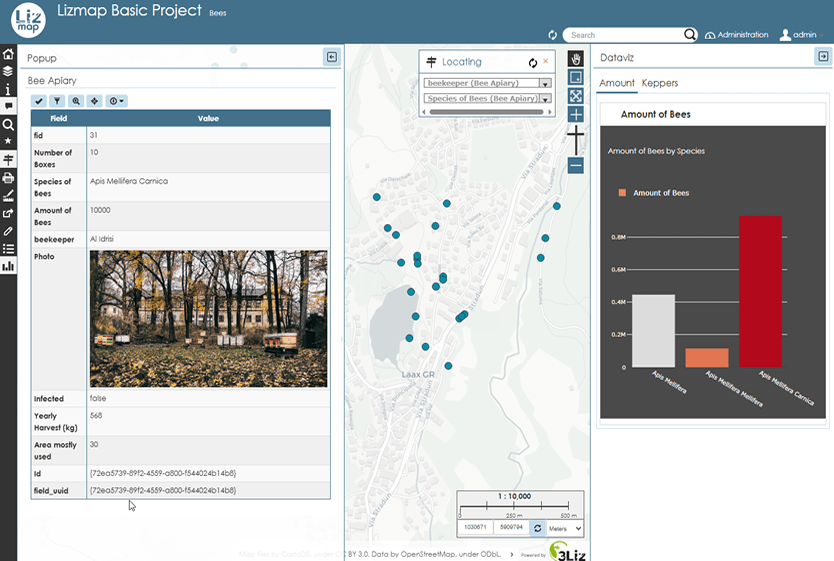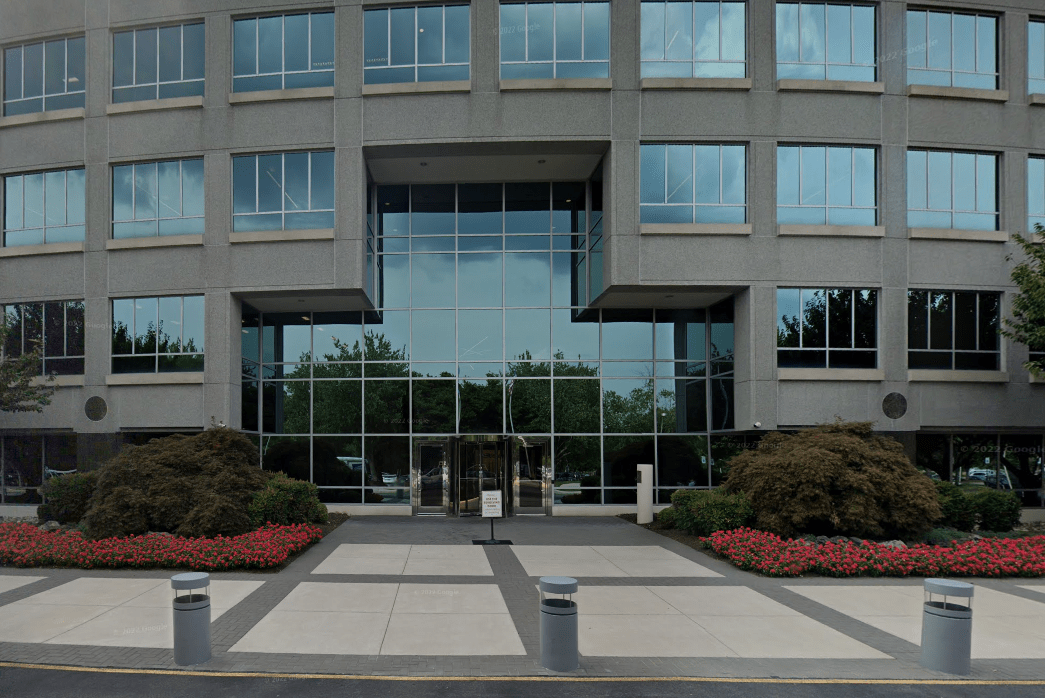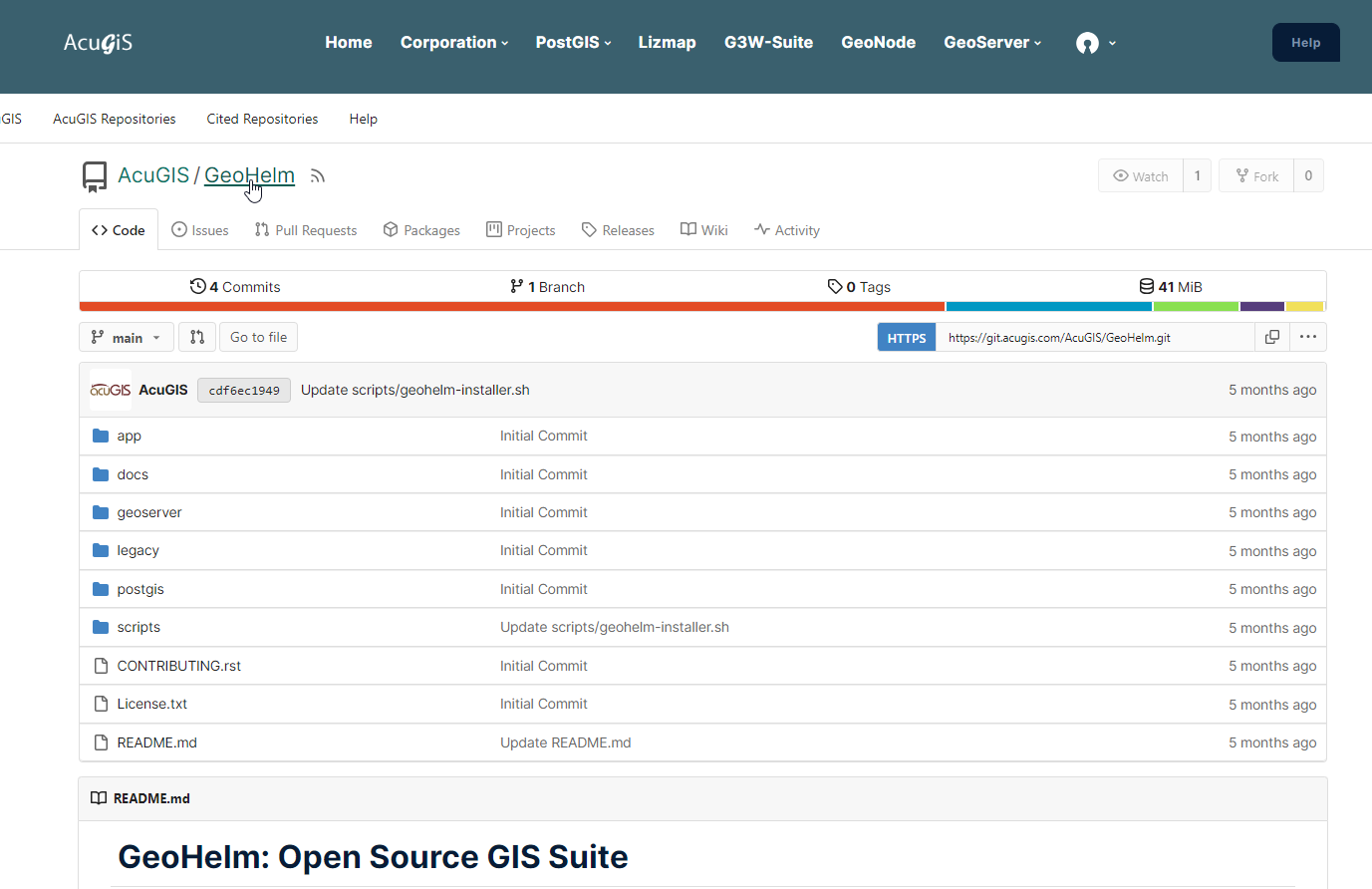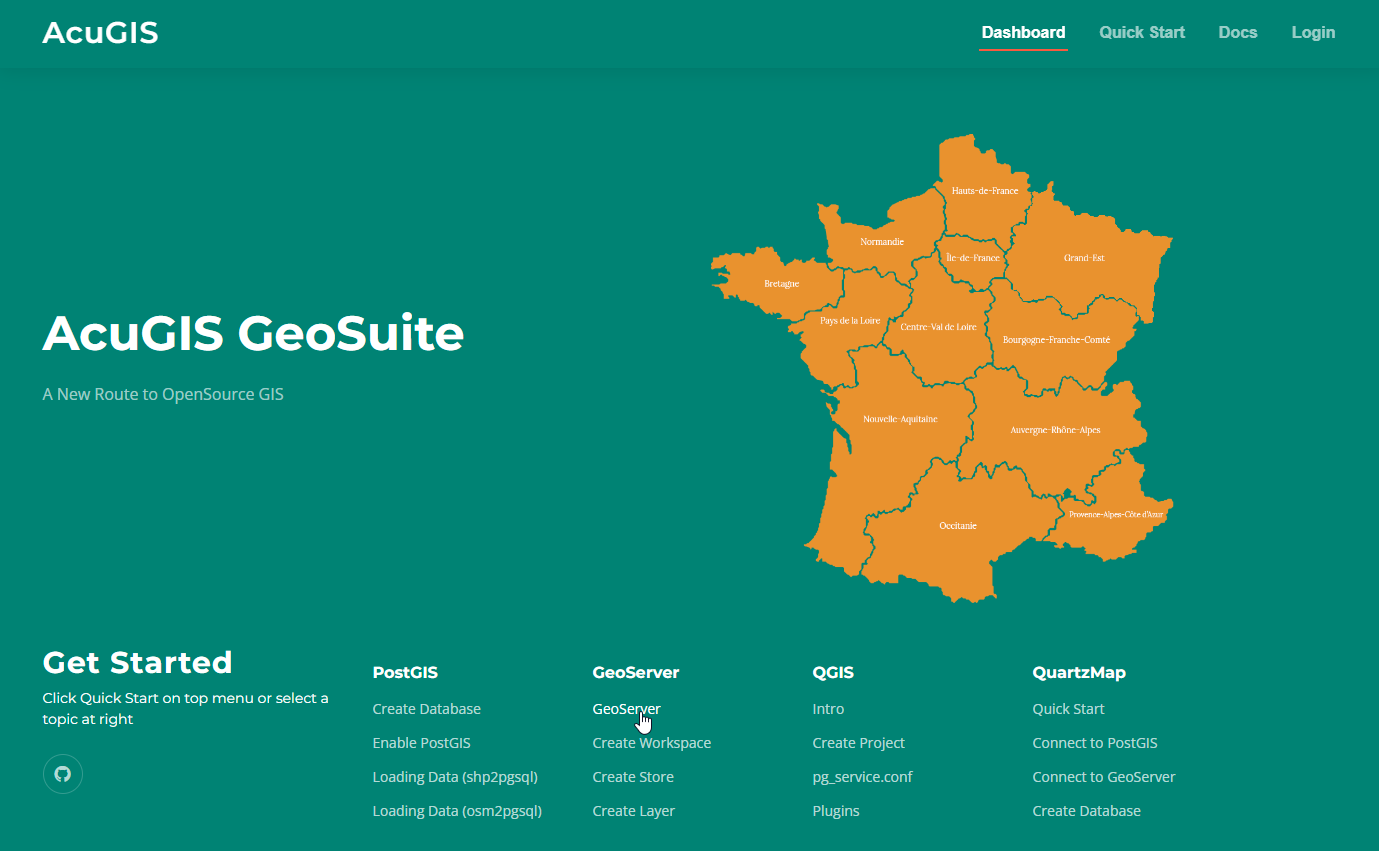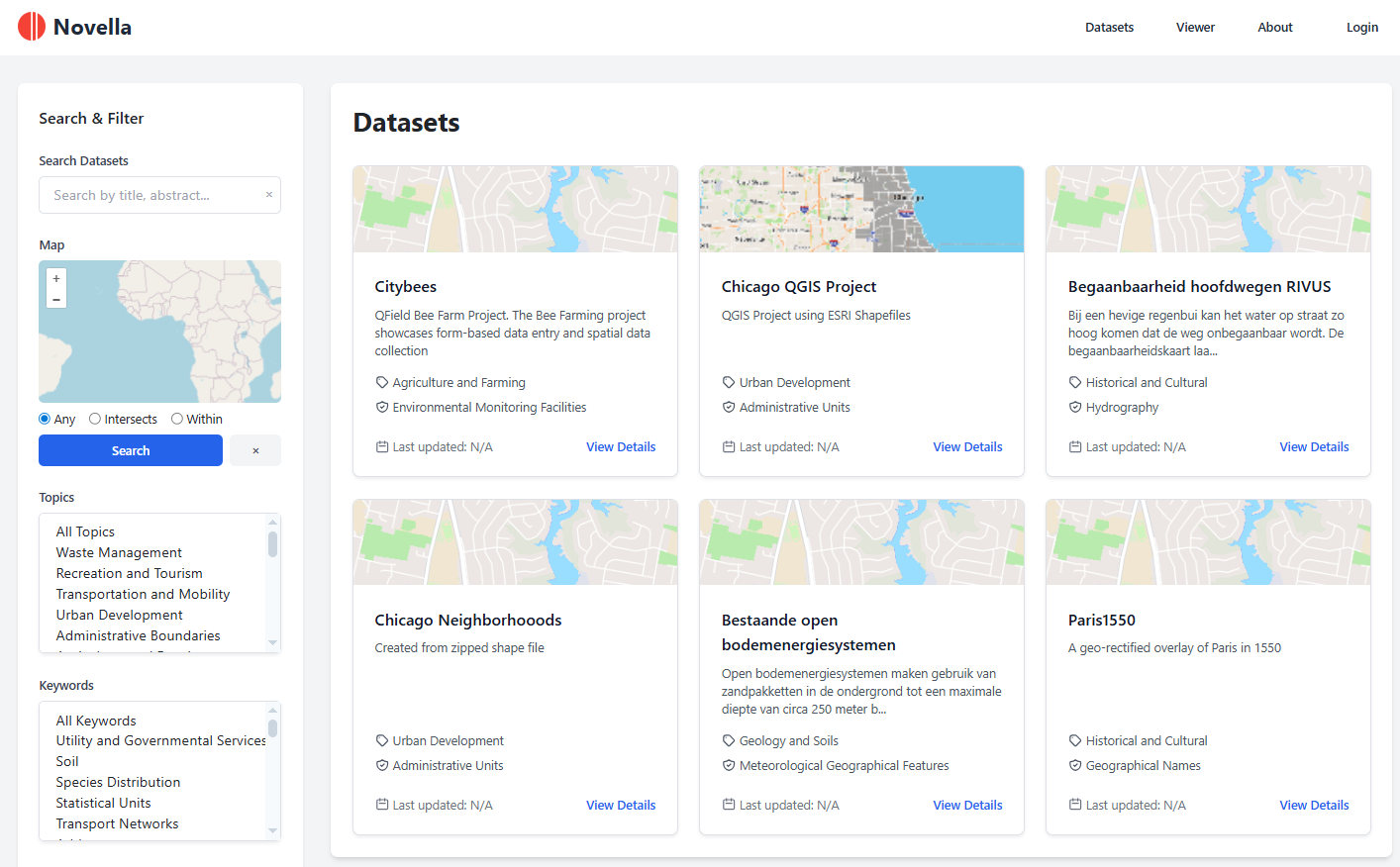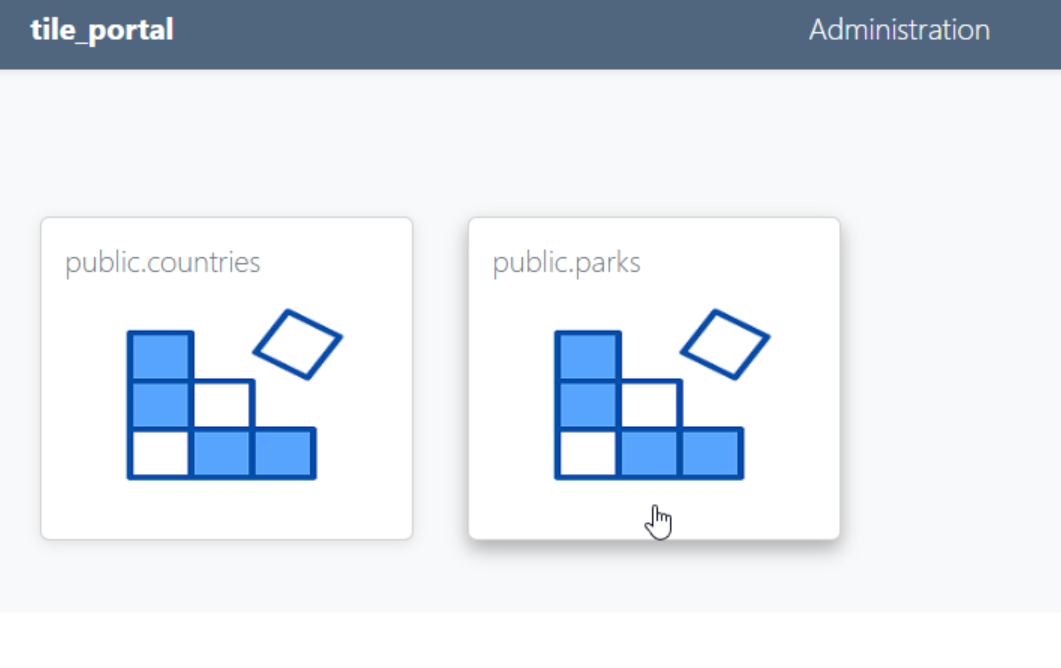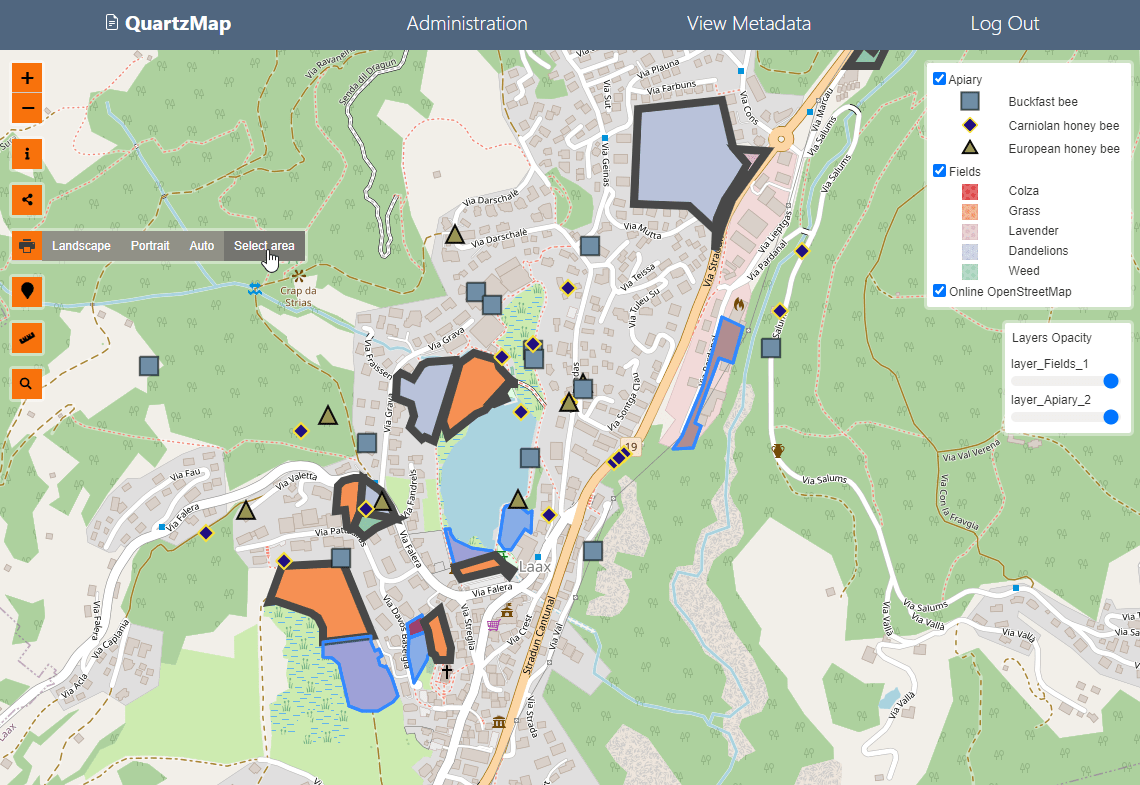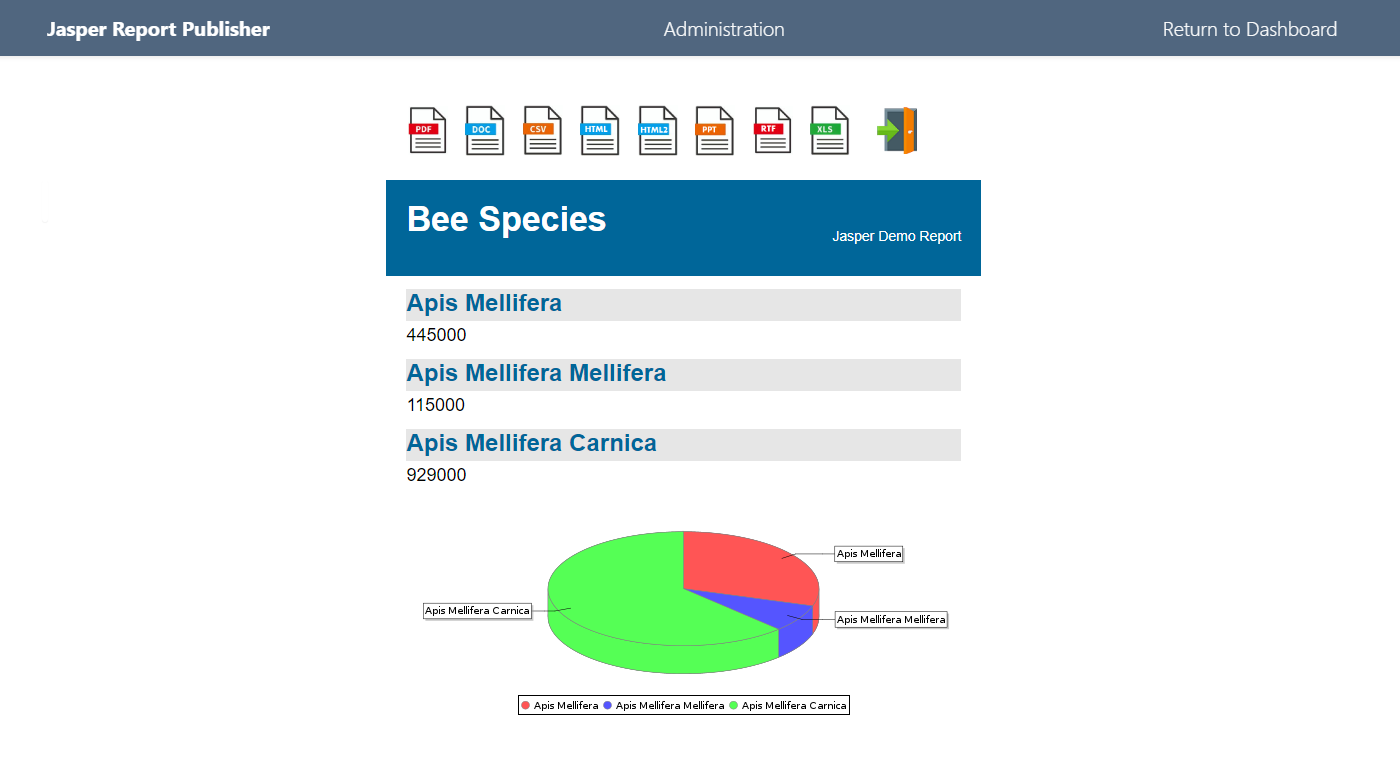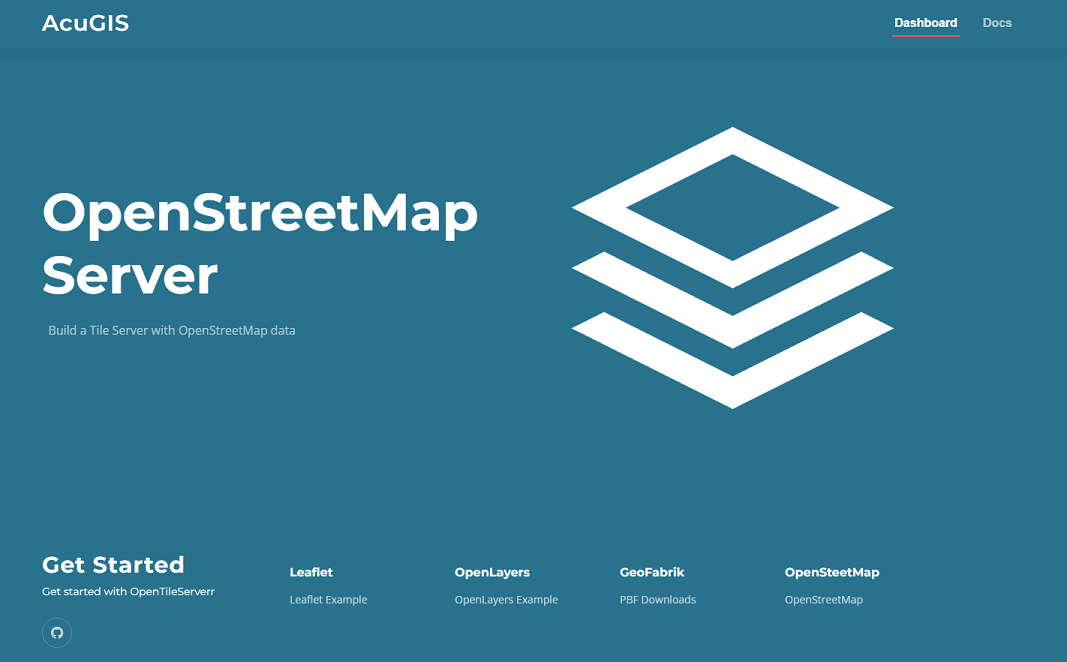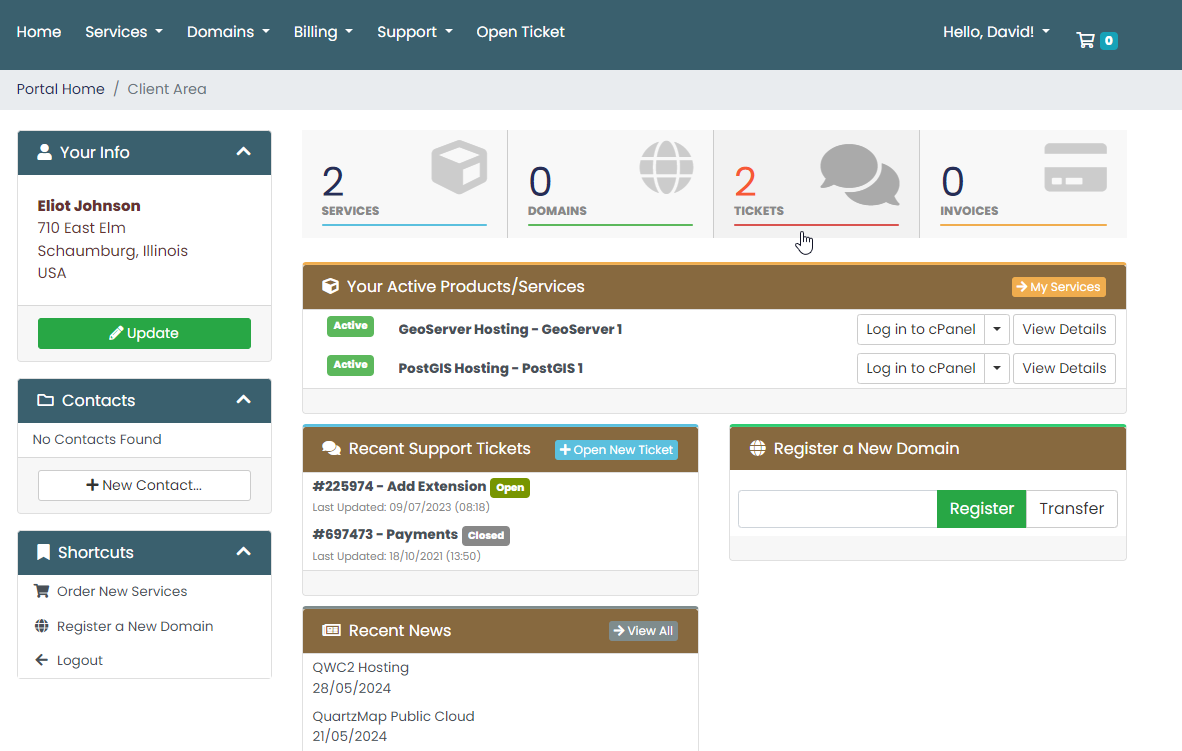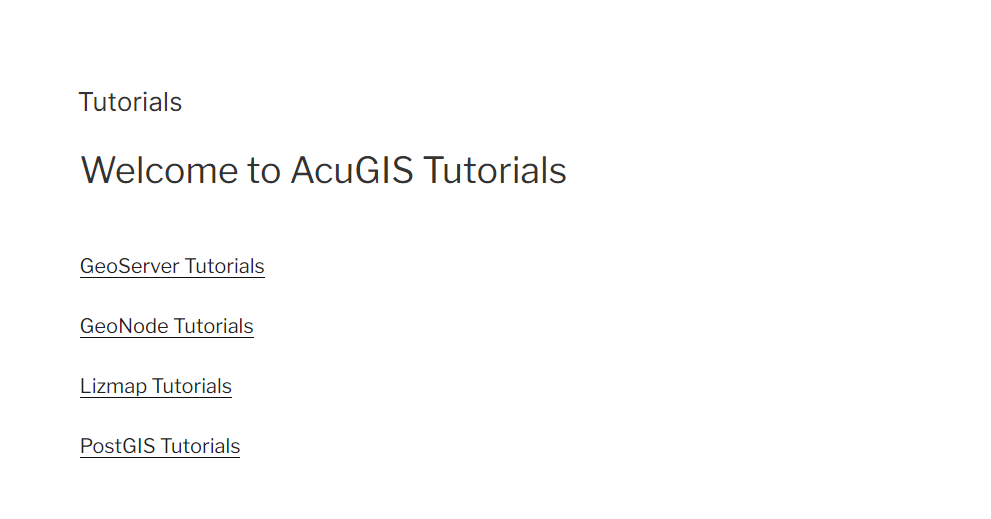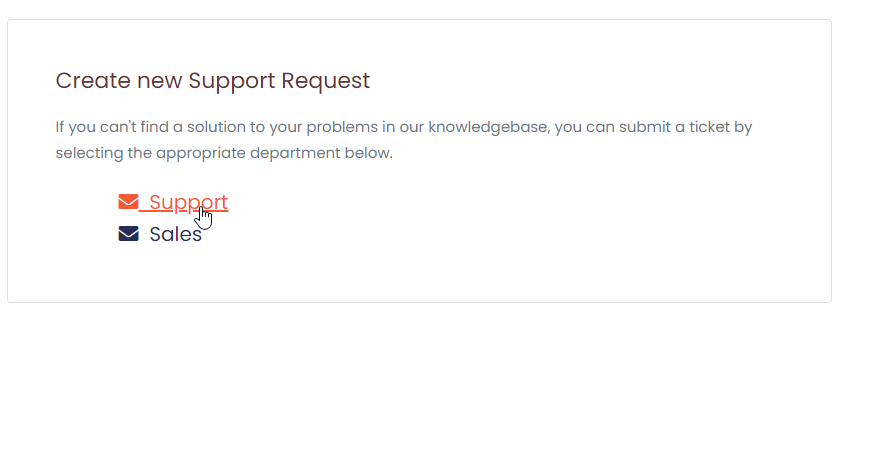|
<!DOCTYPE html>
|
|
<html>
|
|
<head>
|
|
<title>Leaflet debug page</title>
|
|
|
|
<link rel="stylesheet" href="http://cdn.leafletjs.com/leaflet-0.7/leaflet.css" />
|
|
<script src="http://cdn.leafletjs.com/leaflet-0.7/leaflet.js"></script>
|
|
<meta name="viewport" content="width=device-width, initial-scale=1.0">
|
|
<link rel="stylesheet" href="../screen.css" />
|
|
|
|
<link rel="stylesheet" href="../../dist/MarkerCluster.css" />
|
|
<link rel="stylesheet" href="../../dist/MarkerCluster.Default.css" />
|
|
<script src="../../dist/leaflet.markercluster-src.js"></script>
|
|
</head>
|
|
<body style="font-family: verdana; font-size: 80%;">
|
|
|
|
<div id="map"></div>
|
|
Click on the cluster to <strong>spiderfy</strong> and then <button id="moveTrain">move train</button><br/>
|
|
<br/>
|
|
<div style="color: #888;"><strong>Note:</strong> The marker on the old cluster position comes back on next move or on map scrolling.</div>
|
|
|
|
<script type="text/javascript">
|
|
|
|
var stationJson = {
|
|
"type":"FeatureCollection",
|
|
"features":[
|
|
{"type":"Feature","id":1,"properties":{"type":"station","name":"Appenzell"},"geometry":{"type":"Point","coordinates":[9.40991,47.32849]}},
|
|
{"type":"Feature","id":2,"properties":{"type":"station","name":"Gais"},"geometry":{"type":"Point","coordinates":[9.45107,47.36073]}},
|
|
{"type":"Feature","id":3,"properties":{"type":"station","name":"St. Gallen"},"geometry":{"type":"Point","coordinates":[9.36901,47.42208]}},
|
|
{"type":"Feature","id":4,"properties":{"type":"station","name":"Teufen"},"geometry":{"type":"Point","coordinates":[9.390178,47.390157]}}
|
|
]};
|
|
|
|
var trainJson = [{
|
|
"type":"FeatureCollection",
|
|
"features":[
|
|
{"type":"Feature","id":10,"properties":{"type":"train","name":"Testtrain"},"geometry":{"type":"Point","coordinates":[9.36901,47.42208]}}
|
|
]},{
|
|
"type":"FeatureCollection",
|
|
"features":[
|
|
{"type":"Feature","id":10,"properties":{"type":"train","name":"Testtrain"},"geometry":{"type":"Point","coordinates":[9.390178,47.390157]}}
|
|
]},{
|
|
"type":"FeatureCollection",
|
|
"features":[
|
|
{"type":"Feature","id":10,"properties":{"type":"train","name":"Testtrain"},"geometry":{"type":"Point","coordinates":[9.45107,47.36073]}}
|
|
]},{
|
|
"type":"FeatureCollection",
|
|
"features":[
|
|
{"type":"Feature","id":10,"properties":{"type":"train","name":"Testtrain"},"geometry":{"type":"Point","coordinates":[9.40991,47.32849]}}
|
|
]}];
|
|
|
|
var trainPosition = 0,
|
|
trainDirection = 'up';
|
|
|
|
var tiles = L.tileLayer('http://{s}.tile.osm.org/{z}/{x}/{y}.png', {
|
|
maxZoom: 18,
|
|
attribution: '© <a href="http://osm.org/copyright">OpenStreetMap</a> contributors'
|
|
}),
|
|
map = new L.Map('map', {zoom: 15, layers: [tiles]}),
|
|
markers = new L.MarkerClusterGroup({ spiderfyOnMaxZoom: false, showCoverageOnHover: false, zoomToBoundsOnClick: false });
|
|
|
|
var stationGeoJsonLayer = L.geoJson(stationJson, {
|
|
onEachFeature: function (feature, layer) {
|
|
layer.bindPopup(feature.properties.name);
|
|
}
|
|
}),
|
|
trainGeoJsonLayer = L.geoJson(trainJson[trainPosition], {
|
|
onEachFeature: function (feature, layer) {
|
|
layer.bindPopup(feature.properties.name);
|
|
}
|
|
});
|
|
|
|
// initial load
|
|
markers.addLayer(stationGeoJsonLayer);
|
|
markers.addLayer(trainGeoJsonLayer);
|
|
map.fitBounds(markers.getBounds());
|
|
|
|
markers.on('clusterclick', function (a) {
|
|
a.layer.spiderfy();
|
|
});
|
|
|
|
map.addLayer(markers);
|
|
|
|
/**
|
|
* Demonstration method that simulates that we got a new geoJson object with updated train positions.
|
|
*/
|
|
function moveTrain() {
|
|
if (trainDirection == 'up') trainPosition++;
|
|
else if (trainDirection == 'down') trainPosition--;
|
|
if (trainPosition == trainJson.length-1) trainDirection = 'down';
|
|
else if (trainPosition == 0) trainDirection = 'up';
|
|
|
|
// build a new geoJson layer with the new train information
|
|
trainGeoJsonLayer = L.geoJson(trainJson[trainPosition], {});
|
|
|
|
// update the cluster markers with both layers (stations first so that the station marker is always the first on spider.
|
|
markers.clearLayers();
|
|
markers.addLayer(stationGeoJsonLayer);
|
|
markers.addLayer(trainGeoJsonLayer);
|
|
}
|
|
|
|
L.DomUtil.get('moveTrain').onclick = function () {
|
|
moveTrain();
|
|
};
|
|
</script>
|
|
</body>
|
|
</html>
|

 PostGIS
PostGIS Mobile
Mobile QGIS
QGIS MapBender
MapBender GeoServer
GeoServer GeoNode
GeoNode GeoNetwork
GeoNetwork Novella
Novella Solutions
Solutions
